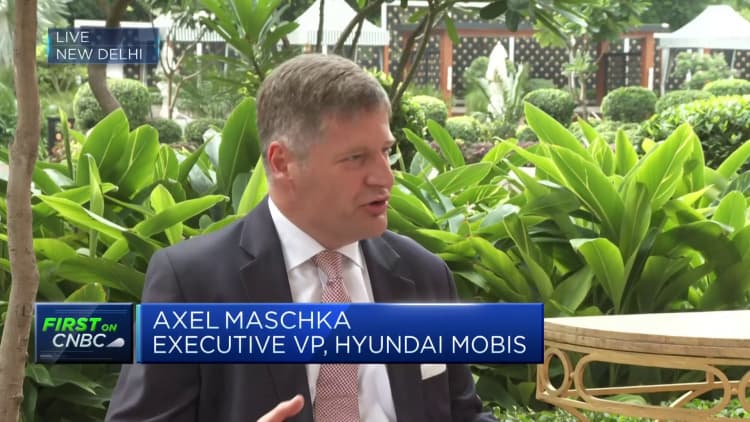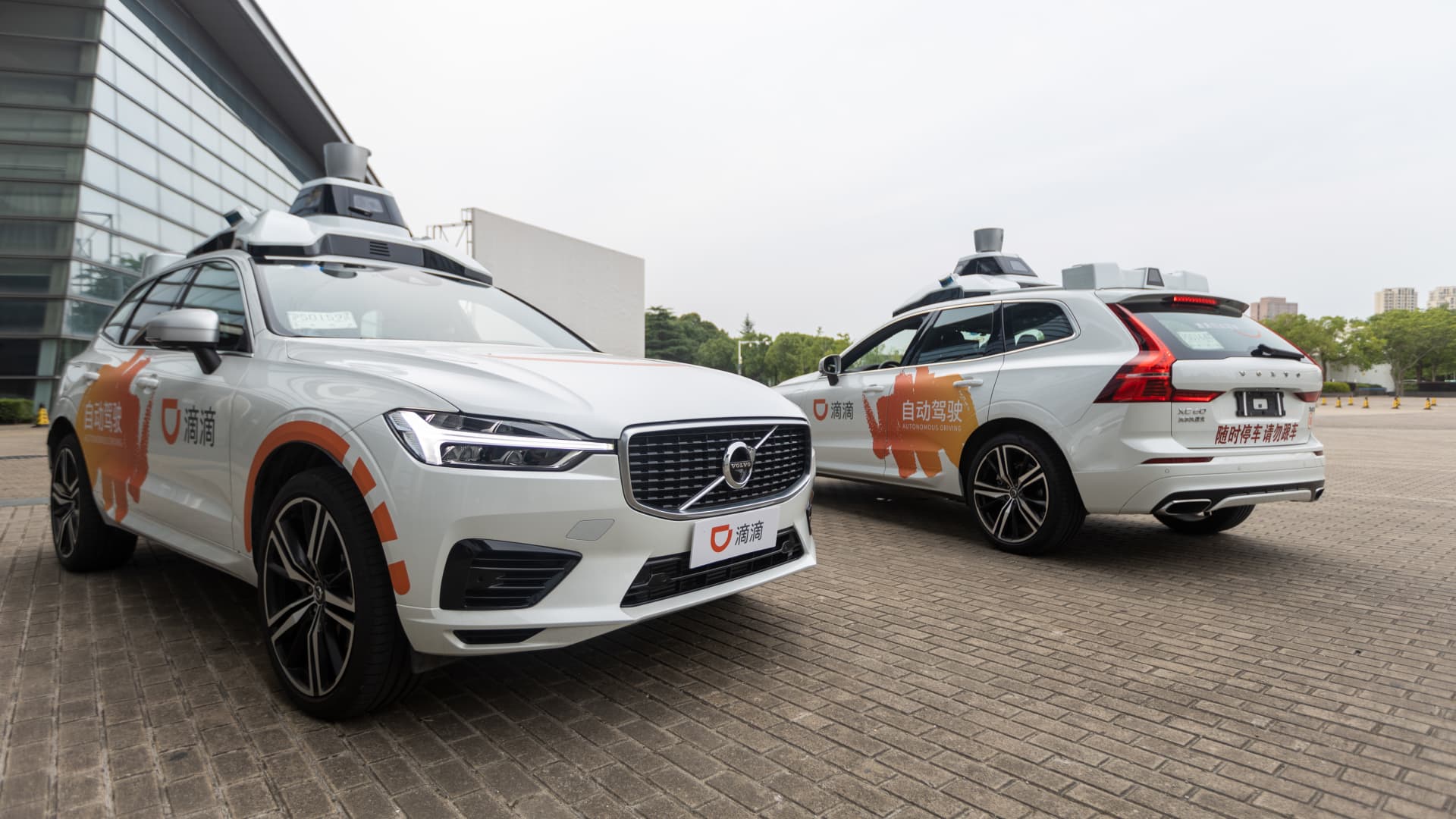Didi launched a free robotaxi service in parts of Shanghai in 2020.
Vcg | Visual China Group | Getty Images
BEIJING — Chinese electric car company Xpeng said Monday it is buying Didi’s smart electric car development business in an exchange of shares worth $744 million.
The Chinese ride-hailing company will become a strategic shareholder of Xpeng, and the two companies are looking to cooperate in marketing, financial and insurance services, charging, robotaxis and international expansion. That’s according to releases from both companies.
Xpeng shares rose more than 13% in Hong Kong trading as of Monday morning.
With the strategic partnership and new assets from Didi, Xpeng said it plans to develop an electric car for launch next year under a new mass market brand that will target the 150,000 yuan ($20,580) price range.
Xpeng’s cars typically sell for around 200,000 yuan or more. The new brand, developed under the project name “MONA,” is set to be different from that of Xpeng.

The startup’s deal with Didi comes as many companies look for ways to grab a slice of China’s growing but highly competitive electric car market.
In late July, Xpeng and German auto giant Volkswagen signed a deal to develop two new electric cars for China under the VW brand, that’s set to launch in 2026.
Under the agreement, Volkswagen plans to invest about $700 million in Xpeng for a 4.99% stake.
Still operating at a loss
The deals come as traditional auto giants have the cash that electric car startups lack.
Earlier this month, Xpeng reported second-quarter net loss 2.8 billion yuan ($384.5 million) — a wider loss than analysts expected and the biggest quarterly loss since the company went public three years ago.
Xpeng offers some of the most advanced assisted driving technology available to drivers in China. But the startup’s monthly car deliveries have remained low versus competitors’ such as BYD and Li Auto.
The Didi electric car business — held by a subsidiary called Da Vinci Auto Co. — has also racked up losses. Those for 2022 more than tripled from the prior year to 2.64 billion yuan, according to a Hong Kong stock exchange filing. The unit had net assets of 937 million yuan as of June 30.
Those financial results are set to be consolidated into Xpeng’s financial statements after the initial deal, the filing said.
The deal is expected to be completed in stages, with Didi set to receive more shares if the new mass market car brand does well for an expected total 3.25% stake in Xpeng.
Under the agreement, Didi cannot sell the shares for two years after the initial closing of the deal.
The strategic cooperation agreement is set to last for at least five years.
Didi itself has tried to develop robotaxis and electric vehicles, amid business setbacks in the last two years.
The ride-hailing giant delisted from the New York Stock Exchange just months after going public in 2021, and went through a now-concluded government probe. While the stock remains tradeable over-the-counter, plans for an expected Hong Kong listing remain unclear.
— CNBC’s John Rosevear and Arjun Kharpal contributed to this report.

